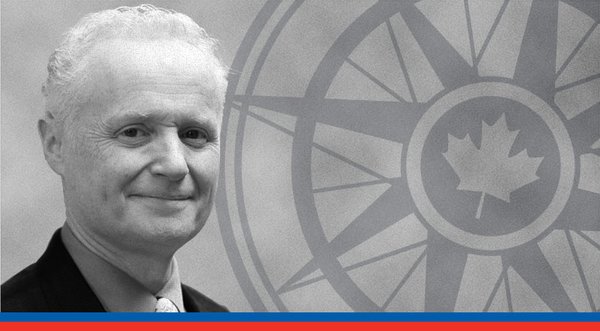In my latest column for the Ottawa Citizen, I write that the centrist Liberals would do themselves and the country a far greater service by rediscovering their deep roots as a party of opportunity and power, winning back the non-socialists who have found a temporary home in the NDP. The full column below.
My column was also published in the Calgary Herald and the National Post’s Chris Selley wrote about it in his Full Pundit review.
Liberals and NDP make a mismatched pair
By Brian Lee Crowley, Ottawa Citizen, June 16, 2012
If, as Shelley teaches us, poets are the unacknowledged legislators of the world and the Bard lays it down that we should not to the marriage of true minds admit impediments, the poetic stars seem to favour wedding bells for the NDP and the Liberals.
Or at least so seem to think a great many members of the commentariat who are agog at the “grassroots movements” allegedly promoting union between the two. Could there be two truer minds vibrating as one than those of these great political parties?
Um, well, yes. Actually I cannot think of a more mismatched pair.
Start with the purpose of political parties in Canada. The matchmakers believe that the point of political parties is primarily ideological, with ideology understood à l’Européenne: left against right. They think a two party system embracing a big government and a small government party is the purest kind of politics. Mostly it is pure hokum.
The party that almost invariably wins in Canada is the one voters believe most exemplifies opportunity, meritocracy and freedom, with the losing party being identified with defence of unearned privilege. For over a century the Liberal Party staked out that unassailable centre ground in Canadian politics. Liberals stood for limited government (Louis St-Laurent, 1957: “Any ideas of non-essential interference by the Government is repugnant to the Liberal Party”), open immigration and moderate taxation.
The Tories, by contrast, while sharing those economic values, were the party of the Family Compact, of the Imperial connection, of Bay Street not Main Street. They were suspicious of immigration. They carried the whiff of Protestant sectarianism.
The Liberals won most of the time, with the Tories only supplanting them occasionally when voters thought the Liberals’ hold on power was going to their head. Think 1957 and 1984. And even when the Tories triumphed the consensus on underlying values vastly outweighed actual differences on policy.
Canadians liked just fine a political system in which the two main parties were quite similar in outlook on basic issues, meaning they could turn out one or the other without disturbing too much the underlying bedrock of widely-shared values. The NDP and its predecessor the CCF were never more than a sideshow, except when brief bouts of minority government made parliamentary math matter more than actual strength in the country. And that was because their policies were outside the mainstream the Tories and Grits sought to represent.
The Liberals poached the occasional policy from the NDP, but did so from the Tories too. Price and wage controls anyone? Despite their rhetoric they embraced free trade and the GST. And when the time came to dress up in Reform’s clothes, there were no more enthusiastic cutters of the state: The Liberals reduced the size of government in Canada more and faster than any other industrialized country managed in the postwar period.
Nor is there anything unusual about countries where the parties vie, not to be different, but to be reassuringly similar. In the UK, Labour and the Tories competed over who was the best administrator of the postwar welfare state. This political doctrine even became known as Butskellism, after Hugh Gaitskell and Rab Butler, a Labour and Tory Chancellor of the Exchequer respectively. When Margaret Thatcher broke that consensus with the electorate’s strong support, the Labour Party became unelectable until Tony Blair’s New Labour embraced much of the economic legacy of Thatcherism, ushering in an era sometimes characterized as Blatcherism.
Convergence by the main parties on values is a virtue that prevents the personnel of any single party becoming too comfortable in power, while the Americans are reminding us daily of the damage caused when the divide between mainstream political parties becomes unbridgeably wide.
And what has our experience been in those provinces where the NDP has become one of the dominant parties? Has it ever been the result of a merger between the alleged soulmates, the Liberals and the NDP? Not once.
On the contrary, a strong NDP has invariably resulted in the withering and virtual disappearance of the Liberals (Manitoba and increasingly Nova Scotia), the Tories (BC) or the merger of the two (Saskatchewan). In effect a Tory-Grit coalition (the Torrits?), whether official or unofficial, is the invariable result of a rising NDP. Where that coalition holds, it triumphs.
The Liberals cannot assume all their voters would follow them into an NDP-dominated party. Remember the inestimable and under-appreciated Bob Rae left the NDP because they leaned too leftward. The centrist Liberals would do themselves and the country a far greater service by rediscovering their deep roots as a party of opportunity and power, winning back the non-socialists who have found a temporary home in the NDP.
The right advice for the Liberals from the poet-legislator? To thine own self be true.
Brian Lee Crowley (@brianleecrowley) is the Managing Director of the Macdonald-Laurier Institute, an independent non-partisan public policy think tank in Ottawa: www.macdonaldlaurier.ca.


